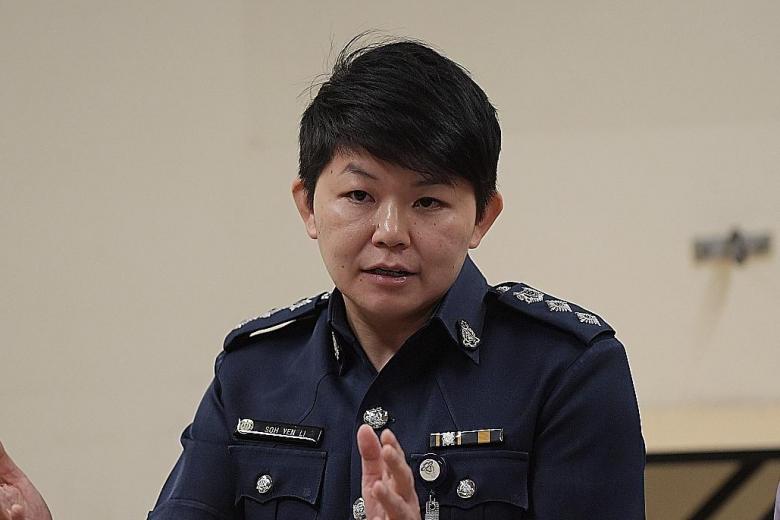
Superintendent Soh Yen Li of a DRC within the Changi Prison Complex.
He was at his void deck taking cannabis when a police officer arrested him.
Recalling the incident, which happened in January last year, Farhan (not his real name) said he kept silent because he knew what he had done.
He said: "I just asked him if he could bring me home. I wanted to see my family... before they took me away."
Farhan, 30, started with cough syrup and sleeping pills, before trying heavier substances.
Farhan had served another stint at the Drug Rehabilitation Centre (DRC) when he was arrested in 2011, but relapsed 15 months after his release.
At the DRC, inmates like Farhan go through rehabilitation programmes like psychology-based correctional programmes and skills training.
He said: "My family, not the friends I did drugs with, visit me. They come whenever they can, even if they are unwell.
"My mother has a heart problem. But I can tell she's trying to pretend she's well enough to come and see me. I want to change for them."
Following the changes in the Misuse of Drugs Act passed in Parliament last Tuesday, those who have committed only drug offences will be eligible for the DRC.
Previously, those who had offended more than two times were jailed under long-term (LT) imprisonment, which means a minimum term of at least five years with three strokes of the cane.
This will see one in two liable for LT imprisonment eligible to be sent to the DRC instead.
As of 2018, the LT inmate population was 4,145, while the DRC population was 1,461.
In 2017, about 45 per cent of DRC inmates were repeat offenders, with this number expected to rise in the short term with the implementation of the changes.
